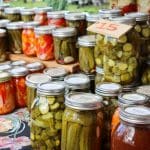In a world grappling with the dual crises of environmental degradation and food insecurity, the staggering waste of animal lives in the global food supply chain presents a pressing yet often overlooked issue. According to a study by Klaura, Breeman, and Scherer, an estimated 18 billion animals are killed annually only to be discarded, highlighting a profound inefficiency and ethical dilemma in our food systems. This article delves into the findings of their research, which not only quantifies the scale of meat loss and waste (MLW) but also brings to light the immense animal suffering involved.
The study, leveraging 2019 data from the UN Food and Agriculture Organization (FAO), examines the loss of meat across five critical stages of the food supply chain—production, storage and handling, processing and packaging, distribution, and consumption—across 158 countries. By focusing on six species—pigs, cows, sheep, goats, chickens, and turkeys—the researchers reveal the grim reality that billions of animal lives are terminated without serving any nutritional purpose.
The implications of these findings are far-reaching. Not only does MLW contribute significantly to environmental degradation, but it also raises serious animal welfare concerns that have been largely neglected in previous analyses. The study aims to make these invisible lives more visible, advocating for a more compassionate and sustainable food system. It underscores the urgent need for global efforts to reduce MLW, aligning with the United Nations’ Sustainable Development Goals (SDGs) to cut food waste by 50%.
This article explores the regional variations in MLW, the economic factors influencing these patterns, and the potential impact of making the food supply chain more efficient. It calls for a collective rethinking of how we produce, consume, and value animal products, emphasizing that reducing MLW is not just an environmental imperative but a moral one as well.
Summary By: Leah Kelly | Original Study By: Klaura, J., Breeman, G., & Scherer, L. (2023) | Published: July 10, 2024
Meat wasted in the global food supply chain equals an estimated 18 billion animal lives annually. This study explores how to address the problem.
Research on sustainable food systems has increasingly prioritized the issue of food loss and waste (FLW), as about one third of all food meant for global human consumption — 1.3 billion metric tons per year — ends up discarded or lost somewhere along the food supply chain. Some national and international governments have started setting goals for food waste reduction, with the United Nations including such a target in its 2016 Sustainable Development Goals (SDGs).
Meat loss and waste (MLW) represents a particularly harmful part of global FLW, in part because animal products have a proportionally larger negative impact on the environment than plant-based foods. However, according to the authors of this study, previous analyses estimating FLW have neglected animal welfare considerations in their calculations of MLW.
This study seeks to measure animal suffering and lives lost as a dimension of MLW. The authors rely on the assumption that, whether or not one believes people should eat animals, it is especially unnecessary to kill animals who end up discarded, serving no “use” at all. Their ultimate aim is to make these animals’ lives more visible to the public, adding yet another urgent reason to reduce MLW and switch to a more compassionate, sustainable food system.
Utilizing 2019 global food and livestock production data from the UN Food and Agriculture Organization (FAO), the researchers employed established methodologies from previous FLW studies to estimate MLW for six species—pigs, cows, sheep, goats, chickens, and turkeys—across 158 countries. They examined five stages of the food supply chain: production, storage and handling, processing and packaging, distribution, and consumption. The calculation primarily focused on quantifying meat loss in carcass weight and excluding non-edible parts, with the use of specific loss factors tailored to each stage of production and global region.
In 2019, an estimated 77.4 million tons of pig, cow, sheep, goat, chicken, and turkey meat were wasted or lost before reaching human consumption, the equivalent of approximately 18 billion animal lives terminated for no “purpose” (referred to as “life losses”). Of these, 74.1 million were cows, 188 million were goats, 195.7 million were sheep, 298.8 million were pigs, 402.3 million were turkeys, and 16.8 billion — or nearly 94% — were chickens. On a per capita basis, this represents about 2.4 wasted animal lives per person.
The majority of animal life losses occurred in the first and last stages of the food supply chain, production and consumption. However, patterns varied significantly depending on the region, with consumption-based losses predominant in North America, Oceania, Europe, and Industrialized Asia, and production-based losses concentrated in Latin America, North and Sub-Saharan Africa, and Western and Central Asia. In South and Southeast Asia, losses were highest in the distribution and processing and packaging stages.
Ten countries accounted for 57% of all life losses, with the largest per-capita perpetrators being South Africa, the U.S., and Brazil. China had the most life losses overall with 16% of the global share. The researchers found that higher GDP regions showed the highest animal life loss per capita compared to lower GDP regions. Sub-Saharan Africa had the lowest total and per-capita life losses.
The authors found that making MLW as efficient as possible in every region could save 7.9 billion animal lives. Meanwhile, reducing MLW across the food supply chain by 50% (one of the UN’s Sustainable Development goals) would spare 8.8 billion lives. Such reductions assume that the same number of animals can be consumed while greatly decreasing the number of animals killed simply to be wasted.
However, the authors provide a word of caution about taking steps to address MLW. For example, although cows had relatively low life losses compared to chickens, they note that cows represent immense environmental impacts versus other species. Similarly, focusing on reducing “ruminant” life losses and ignoring chickens and turkeys may inadvertently cause even more total life losses and animal suffering. Thus, it’s important to consider both environmental and animal welfare goals in any intervention.
It’s important to remember that the study was based on estimates, with several limitations. For example, although the authors excluded “inedible” parts of the animals in their calculations, global regions may differ in what they consider to be inedible. Furthermore, the quality of data varied by species and country, and in general, the authors point out that their analysis may be skewed toward a Western perspective.
For advocates looking to reduce MLW, interventions may be best targeted at North America and Oceania, which causes both the highest per-capita life losses and the highest per-capita greenhouse gas emissions. On top of this, production-based-MLW seems to be higher in lower-income countries, which have more difficulty creating successful interventions, so higher-income countries should bear more of the burden of reduction, especially on the consumption side. Importantly, though, advocates should also ensure that policy-makers and consumers are aware of the extent of animal lives wasted in the food supply chain and how this affects the environment, people, and the animals themselves.
Notice: This content was initially published on Faunalytics.org and may not necessarily reflect the views of the Humane Foundation.















































